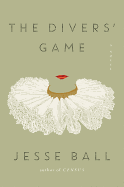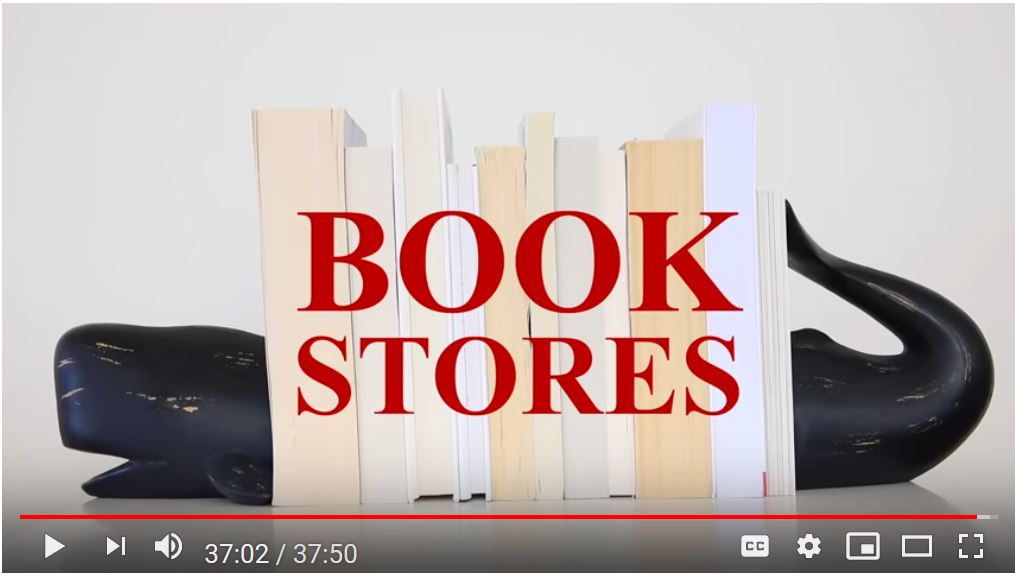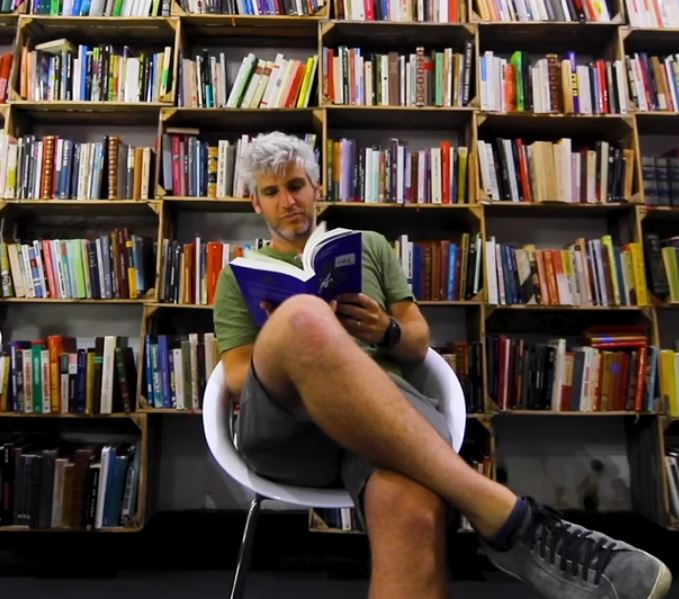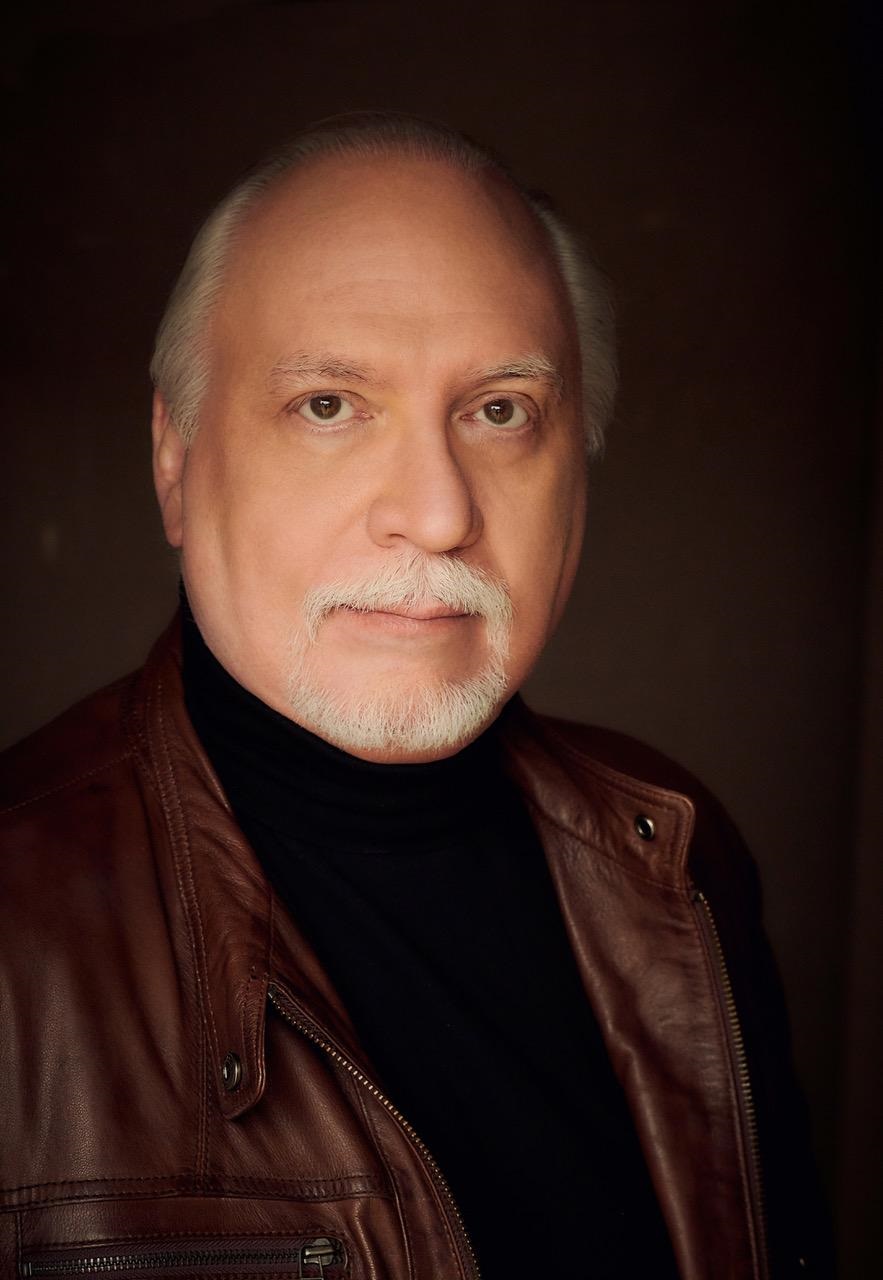 |
| photo: Peter Konerko |
J. Michael Straczynski has written hundreds of hours of television shows; comic books for Marvel and DC that have sold more than 13 million copies; and screenplays of movies that have grossed over a billion dollars. Becoming Superman is his first memoir (Harper Voyager, July 23, 2019).
On your nightstand now:
Rereading A Coney Island of the Mind by Lawrence Ferlinghetti. I believe that an appreciation of poetry is essential for any writer in any field. That economy of language reminds you of the importance of choosing exactly the right word, not the word next to the right one on the shelf. On a conceptual level, I admire Ferlinghetti's writing which comes at you from a right angle with a huge impact, so I reread his work every couple of years to keep my brain flexible.
Favorite book when you were a child:
The Mad Scientists Club by Bertrand Brinley. I liked this series because it showed kids who got away with making trouble in a small town, one of the few to actually applaud mischief. But their hearts were in the right places, and they approached everything from a perspective of (well, close to) actual science in their methodology.
Your top five authors:
Norman Corwin was the country's premiere radio dramatists in the '40s and is still considered a writer's writer, inspiring such folks as Ray Bradbury, Rod Serling, Walter Cronkite, Charles Kuralt and many more to become better writers. I briefly studied under him at SDSU and still can't figure out how he did some of what he did.
Harlan Ellison was an inspirational figure because like me, he came from the streets, he was a scrapper and a troublemaker and didn't have the best grades, but he kept honing his craft and succeeded. I'd been raised to think that writing was an ivory-tower profession, populated by writers from good New England families who wrote while wearing smoking jackets and reclining on macassar fainting couches. Knowing he could make it helped keep me going, and in time we became friends.
Richard Matheson was the quintessential fantasist: his stories and scripts were brilliant in their use of the tropes of fantasy but were also and always grounded in emotion. Whenever I think I'm getting too smart and facile for my own good, I reread his stuff to be reminded of the importance of just writing honestly and from the heart.
Rod Serling was the best of us (along with Paddy Chayefsky) and reading any of his scripts or watching any of his Twilight Zone episodes is like taking a master's class in writing. I have a tendency to over-write, and as much as Serling may be known for long monologues, the construction of those pieces is laser-sharp, not a single wasted word in there anywhere, the result of a clockwork mind clicking along at 10,000 revolutions per second.
Mark Twain was someone I discovered as a young writer, and though some contemporary readers may consider him old-hat, there's an energy and canny intelligence in his work that survives the ages. For construction of narrative, humor and most particularly a way of looking at action in a fresh or unusual way that enlivens the narrative, there's nobody better.
Book you've faked reading:
Ulysses by James Joyce. The first time I tried to read Ulysses was when a friend in college bet me 20 bucks I couldn't finish it. I lost that bet. I've probably tried half a dozen times over the long years to finish the triple-damned thing, but I just can't get there, so I lie. Mea culpa, mea culpa, mea maxima culpa.
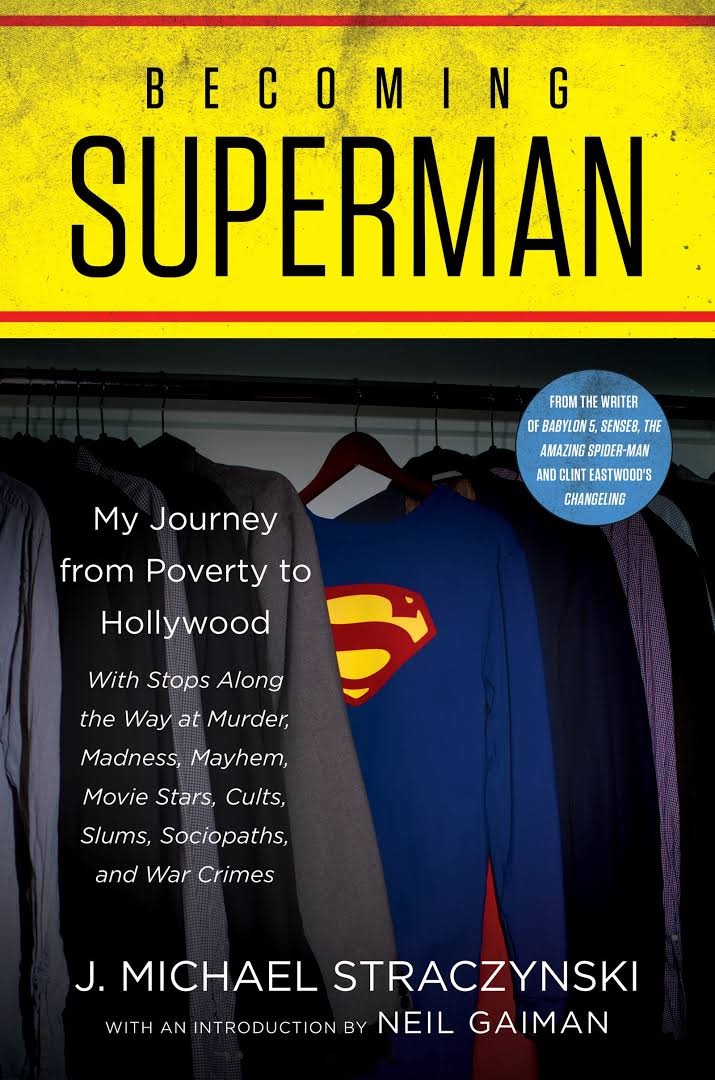 Book you're an evangelist for:
Book you're an evangelist for:
Land of Laughs, Jonathan Carroll. That Carroll's name is not more widely known is unfortunate because he is a superb craftsman and a surrealist thinker and a damned fine writer. Land of Laughs was the first book of his I read and remains one of the best in his canon. It's creepy and smart and populated with rich, interesting characters and definitely needs to be more widely read.
Book you've bought for the cover:
Literally anything by H.P. Lovecraft because the covers were so garish and scary and otherworldly.
Book you hid from your parents:
Literally anything by H.P. Lovecraft because the covers were so garish and scary and other-worldly.
Book that changed your life:
I Have No Mouth, and I Must Scream (collection) Harlan Ellison. As someone who was largely self-educated as a kid, my sense of what constituted science fiction came from the ranks of classic SF: Ray Bradbury, E.E. "Doc" Smith, Arthur Clarke, Isaac Asimov--stories that wrote from the technology out to the characters. I Have No Mouth was one of the breakthrough books of the New Wave of SF and turned that motif absolutely upside down. It was like nothing I'd ever read before, and it spun my head around 180 degrees both as a writer and a fan of the genre.
Favorite line from a book:
"For the love of God, Montresor!" --from "The Cask of Amontillado," Edgar Allan Poe. I can't even tell you why. It just so perfectly encapsulates the dilemma faced by the character, and embodies the story's theme of revenge that it sticks with me always.
Five books you'll never part with:
Mark Twain's Speeches because the man knew how to put together a talk that was entertaining and informative and challenging and boy howdy do I need that.
The Oxford English Dictionary (bookshelf edition) because it's endless fun browsing through not just the words themselves but the Indo-European word derivations provided for many of the definitions, tracing back the work through many iterations, each adding new and unexpected shadings of meaning.
The Haunting of Hill House by Shirley Jackson, because she was one of the best of us, because her storytelling skills were impeccable and because there are some nights when apparently sleep just isn't a priority for me.
The Annotated Sherlock Holmes, William S. Baring-Gould. I'm a big Sherlock fan and love to reread this for the details behind the creation of those stories. I learn something new every time.
The Literature of England, edited by George K. Anderson and William E. Buckler, because I fell in love with classical English literature in college, and this was one of the best texts I ever came across for a generalist view of that period.
Book you most want to read again for the first time:
The Martian Chronicles, Ray Bradbury, just to experience that sense of wonder all over again.
Favorite poem:
Ulysses by Tennyson because of what it says about the raw, naked courage required to keep going under the worst of circumstances, and to then go one step forward to reinvent oneself, to push off into new possibilities; that there is hope, even at the end of all things.
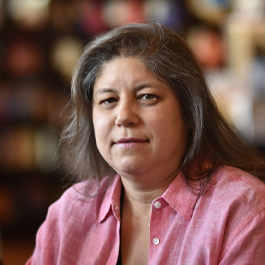 "Right now, I feel we're on the verge of another big change in bookselling. We have to figure out--with our industry partners--how to make bookstores of all types sustainable, and how to improve the quality of life as a bookseller."
"Right now, I feel we're on the verge of another big change in bookselling. We have to figure out--with our industry partners--how to make bookstores of all types sustainable, and how to improve the quality of life as a bookseller."












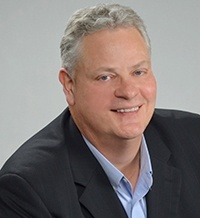

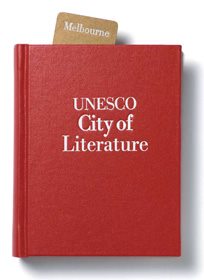
 Barnes & Noble has opened a new, smaller concept store in Woodbury, Minn., that is around 10,000 square feet smaller than one of its usual stores, the
Barnes & Noble has opened a new, smaller concept store in Woodbury, Minn., that is around 10,000 square feet smaller than one of its usual stores, the 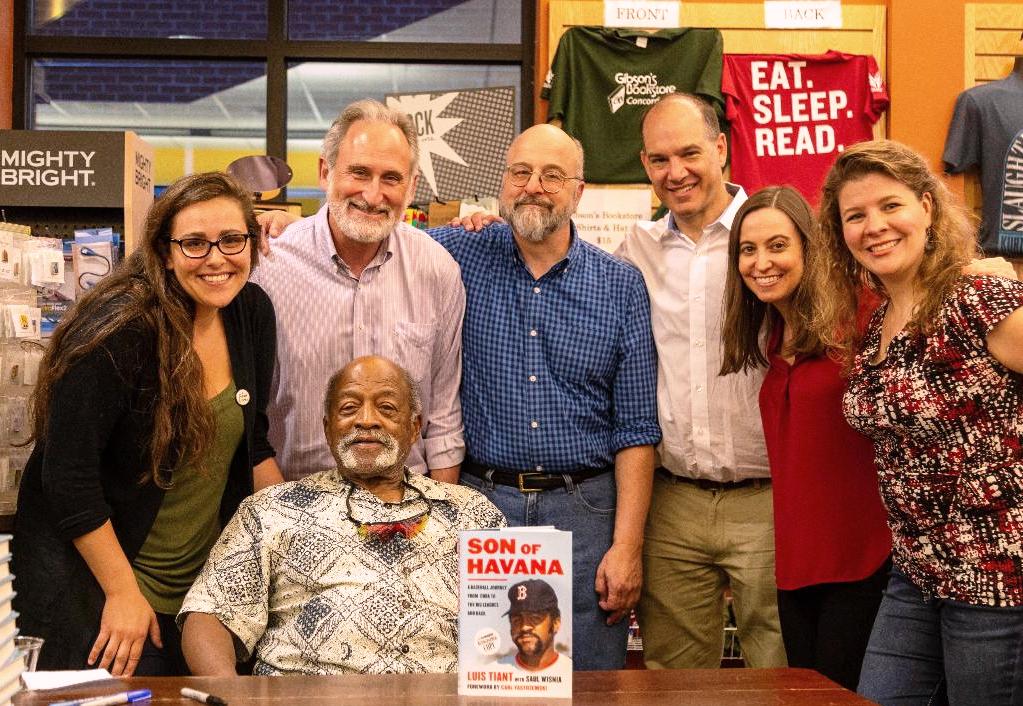
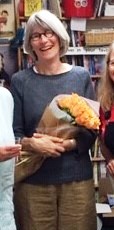
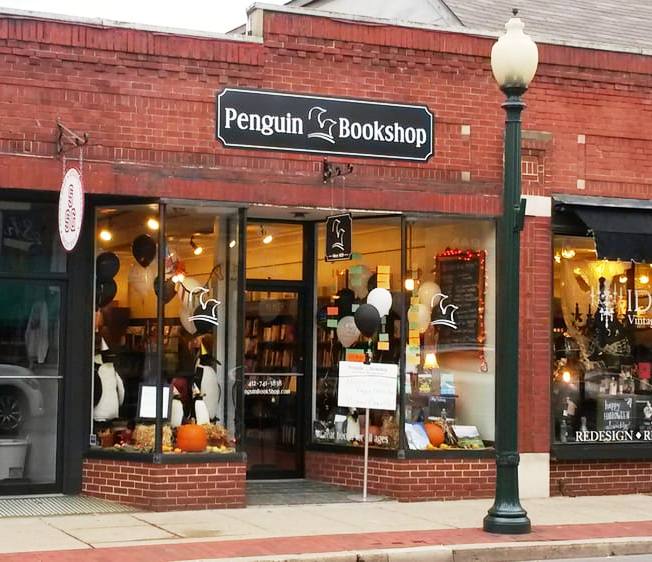 The latest subject of Bookselling This Week's "
The latest subject of Bookselling This Week's "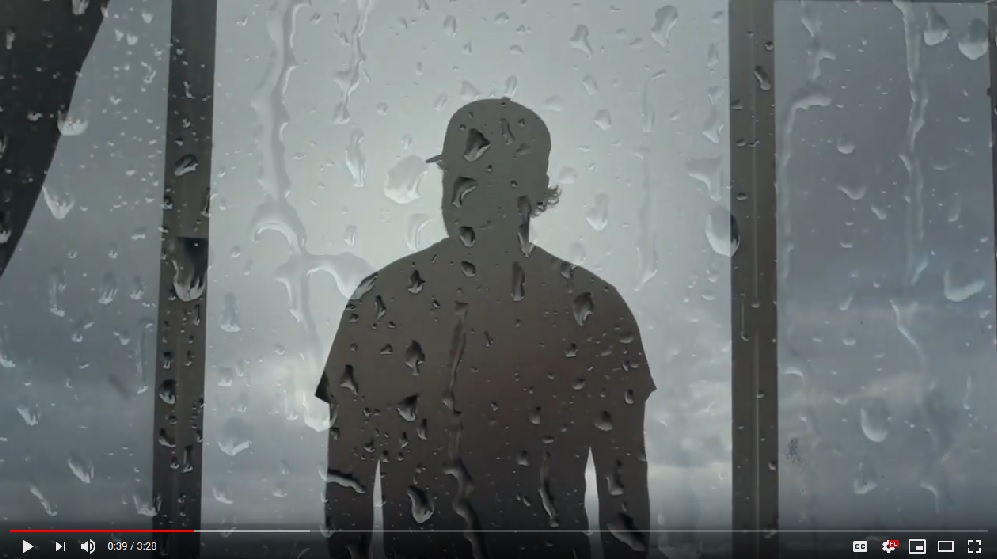 The Magical Path: Creating the Life of Your Dreams and a World That Works for All
The Magical Path: Creating the Life of Your Dreams and a World That Works for All
 Book you're an evangelist for:
Book you're an evangelist for: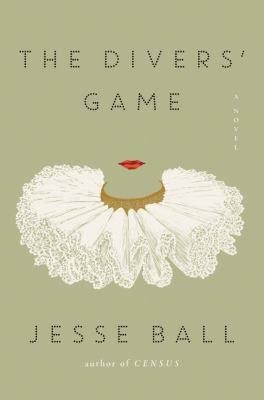 Jesse Ball (Census) has fashioned a modern allegory about the brutality of society in his dark dystopian novel The Divers' Game.
Jesse Ball (Census) has fashioned a modern allegory about the brutality of society in his dark dystopian novel The Divers' Game.